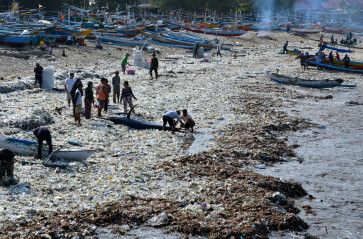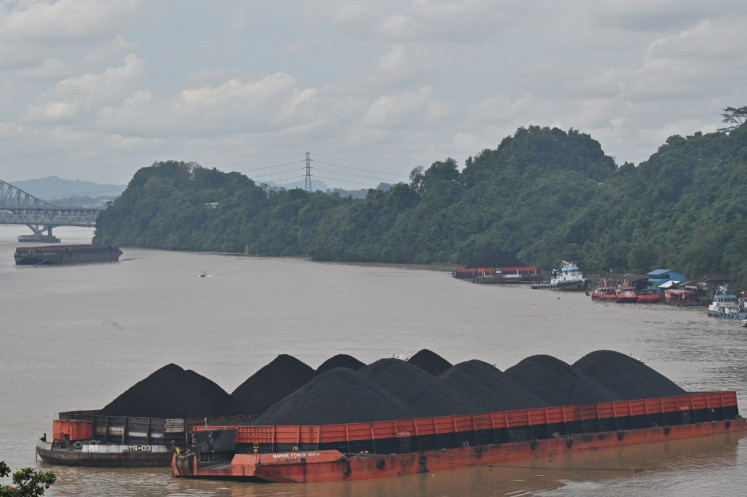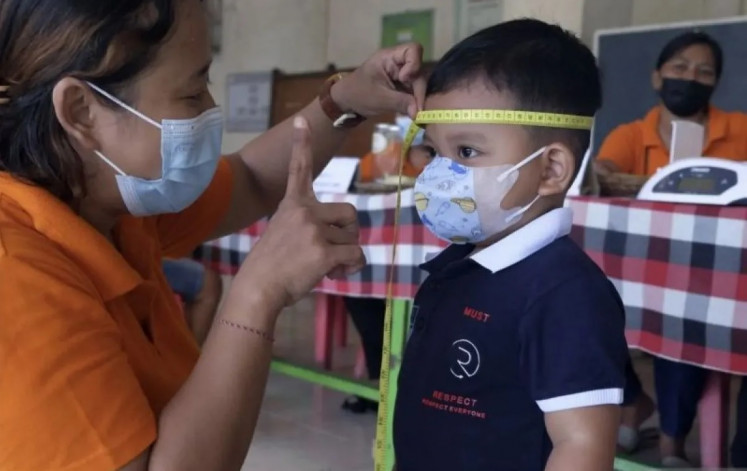Omission of key principles in ISPO sparks concern
A group of 45 civil society organizations (CSOs) concerned with environmental issues have criticized the government for taking a backward step on its commitment to create a sustainable palm oil industry
Change text size
Gift Premium Articles
to Anyone

A
group of 45 civil society organizations (CSOs) concerned with environmental issues have criticized the government for taking a backward step on its commitment to create a sustainable palm oil industry.
The setback pointed out by the group pertains to a draft of a presidential regulation on Indonesia Sustainable Palm Oil (ISPO) Strengthening, which it alleges has omitted principles of traceability and human rights.
The earlier draft contained nine principles as the basis for the regulation, but the latest one only comprises seven principles, omitting the principles on human rights and traceability, said the group’s spokeswoman Mardi Minangsari in a press briefing on Sunday.
The two principles were crucial as the industry currently struggles with deforestation, human rights issues, land reform and waste management, she added.
“With this setback, we think that the government hasn’t been ready to fully reform the industry because it still neglects to realize the importance of the two issues,” Mardi said.
In the past five months, for instance, thousands of residents along the Cikalong and Cidurian rivers in Bogor regency, West Java, have grappled with bad smell allegedly because of waste from palm oil processing factories owned by state-owned plantation firm PTPN VIII and other companies.
Indonesia, the world’s largest producer of palm oil, has struggled to improve sustainability in the production of the commodity, which contributes billions of dollars to state revenue.
In 2011, it introduced the ISPO scheme, which requires national mandatory sustainability certification, after several big buyers, such as Nestle, stopped buying Indonesian palm oil.
Discussions on a new regulation to strengthen the scheme emerged in 2016 after it failed to yield a significant result.
The Office of the Coordinating Economic Minister has been leading the formulation of the draft based on recommendations, especially concerning environmental issues, from related ministries and CSOs at both the regional and national level.
In response to the issue, the Coordinating Economic Minister’s undersecretary for food and agriculture, Muzdalifah, claimed that the two principals were not being erased, but instead merged with other principles.
“Nothing has been abolished. We only combined them [the principles]. Traceability was merged with the transparency principle, while the human rights principle was integrated with labor management. So, it’s just a matter of grouping,” she said in a text message to The Jakarta Post.
Muzdalifah added that the draft was waiting for approval from related ministries and the regulation was expected to be issued in February.
The group, which comprises CSOs from Sumatra to Papua, suggested that the industry resolve the problem of traceability in the supply chain, which will uncover the detailed distribution flows from farmers to producers of palm oil products. This is based on the group’s research showing that price manipulation by middlemen who buy the palm oil from farmers was prevalent.
It also recommended that to uphold human rights, the new regulation must require the industry to have a special mechanism and a body to accept complaints from laborers or farmers, as well as an independent supervision body for all ISPO activities.
Sri Palupi, a researcher from the Institute for Ecosoc Rights, said the traceability and human rights principles were critical for the palm oil industry and they could not be merged with other principles.
“Probably, the government wants to tone down the human rights principle by requiring the companies to merely carry out corporate social responsibility programs. So from what I’ve seen, the intention is only to wrap up the misappropriations,” she said.
Sri added that the setback on the regulation could mean that the government had probably decided to forget complaints from the European Union (EU) and take shortcut measures to boost export to other countries that paid less attention to sustainability, such as India and China.
Earlier, the Indonesian Palm Oil Farmers’ Association secretary-general Asmar Arsyad demanded the government halt palm oil shipments to the EU as other countries have been the major consumers of the commodity. (srs)









